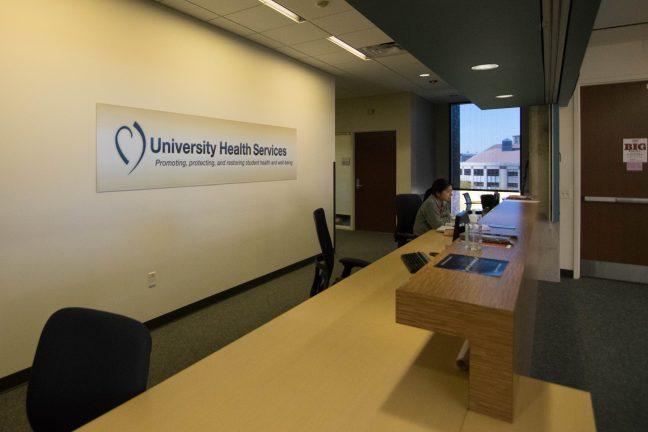Mental health is really hard to talk about. It’s even harder to talk about in a non-native language with someone who can’t possibly understand the nuances of your experiences.
According to the Office of the Registrar, more than 13 percent of University of Wisconsin students are international students and of these students, more than half are from China. In order to create more comprehensive, accessible healthcare for this significant population of UW students, University Health Services recently hired Wei-Chiao Hsu, a PhD candidate and mental health provider, originally from Taiwan and fluent in Mandarin and English.
Hsu specializes in relationship difficulties, academic and career issues, grief and loss, and mental illness, and has a focus on aiding students with international transitions.
“Being able to provide Mandarin services helps remove the language barrier so that at least there is one thing that the students don’t have to adjust when they access health services,” Hsu said.
UHS aims to expand mental health services through new online program, added staff
UHS has received criticism for oversimplifying mental health to the point of being counterproductive. Issues with understaffing make it hard to fully accommodate every student’s needs.
This is not a new issue, nor is it an isolated one — around the country, colleges are finding it hard to provide ample mental health resources for their students. From extremely high student-to-counselor ratios to dangerously long waiting lists for appointments, many colleges are woefully underprepared to address students’ mental health concerns.
But many schools, UW included, have recently made concerted efforts to address this crisis. A year and a half ago, The Badger Herald published a story about initiatives UHS was taking to address mental health given budget constraints. One year ago, UHS reaffirmed that commitment through priorities in their budget.
UHS strives to expand mental health services despite financial restraints
Since then, UHS has only continued this trend. Through hiring new staff, including staff specifically for students of underrepresented communities, UHS has continually worked toward providing counselors for every student who needs one.
But with such a large student body, it would be nearly impossible, given limited funding, to hire sufficient staff for regular in-person counseling for each and every student who needed it. To address this, UHS has made great strides in developing supplemental resources for students.
In September, UHS launched a plan to conduct mental health consultations via phone, instead of in person. This initiative has increased accessibility to resources and streamlined the process of gettings students the resources they need. As The Herald précised, UHS Co-Director Andrea Lawson expressed her optimism that “the new system will not only better accommodate students’ schedules, but also encourage hesitant students to seek out services.”
Additionally, earlier this year, UHS introduced SilverCloud, “an online, self-guided, interactive mental health resource.” The program is designed to act as a time-flexible supplement for counseling, providing students a space to work through mild to moderate mental health concerns.
UHS expressed hope the program would allow them to help students who would otherwise be unable or unwilling to reach out for help. Upon reflection of the initial success of the program, UHS reported of the 468 enrolled in SilverCloud, around 85 percent said they found the modules to be helpful in addressing their concerns.
Mental health is hard to talk about, address and solve. Those tasks are even harder without the proper resources to do so and UW students have suffered the consequences. In a 2016 survey, UHS found 36 percent of students want expanded mental health resources.
UHS is not perfect and has certainly not achieved total success with all mental health resources. But their ongoing efforts to update and improve their programs since receiving that feedback shows commitment to UW students’ mental health.
But UHS can’t stop here. As students, we need to continue to ask for what we need in terms of mental health care. UHS has shown they will address concerns, but it’s up to students to put pressure on the administration to do so. Mental health is so, so important and students should take charge of their own care and demand what they need.
Cait Gibbons ([email protected]) is a sophomore majoring in math with a certificate in Chinese.





















